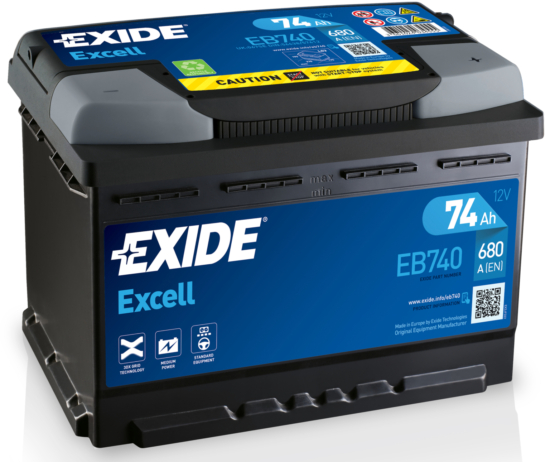Reducing mileages make Exide’s Carbon Boost ‘the ideal battery solution’ – Ecobat
 (Photo: Ecobat, Exide)
(Photo: Ecobat, Exide)
As the brand’s key strategic supply partner in the UK and Ireland, Ecobat Battery Technologies (Ecobat) is highlighting Exide’s Carbon Boost products, which are described as “the batter[ies] of choice for workshops” – with Carbon Boost technology particular pertinent in times of reducing miles-driven figures.
According to Department of Transport’s 2017 national travel survey (NTS 2017), in recent years the average annual number of trips and mileage of the typical car has fallen from 678 journeys and 7,193 miles in 2002, to 594 and 6,580 in 2017. This drop is due to a number of factors, but include rising fuel costs (from around 90p per litre in 2006, to £1.25 today), environmental concerns, congestion charges and the fact that many households now have more than one car, so journeys are spread across different vehicles.
During the coronavirus pandemic period, these reductions have accelerated, and although the current move out of lockdown restrictions is likely to lead to an increase in vehicle usage, the overall trend remains clear. The effect this has had is profound because the reduction in average mileage has corresponded with an increase in the electrical demands on the battery and means that typically, a conventional battery requires 10 miles of continuous driving to replace the power lost when starting the engine and keep it in a healthy state of charge. With average pre-pandemic mileage now down to around 18 miles a day (nine miles each way), it is clear that many batteries are not being charged sufficiently during the vehicle’s normal use, so, more batteries are failing prematurely.
Initially developed for its start/stop OE batteries, Carbon Boost is Exide’s electrochemical solution for longer battery life and uses carbon additives on the surface of the negative plates to increase the speed at which the sulphate particles dissolve. Exide is the only battery manufacturer to adopt this approach, which leads to faster recharging, protection from sulphation, and less stratification.
However, continuous investments in research and development, tighter government emissions regulations and the increasing demands from the VMs in regards to charge acceptance and energy availability, have subsequently led to the development of Carbon Boost 2.0.
Carbon Boost 2.0 uses improved carbon additives, combining an optimised surface structure with significantly better conductivity. This enables a superior current flow within the battery, resulting in unmatched charge acceptance. It also helps to dissolve the lead sulphate deposits that usually consolidate on a battery’s discharged negative plates, which reduce its ability to charge back efficiently.
As a result, Exide batteries incorporating the technology are able to recharge in half the distance (five miles of continuous driving) of a conventional battery and therefore allow workshops to offer their customers a replacement with greater longevity and the promise of increased reliability.
When it comes to distribution, Ecobat has this covered via a 13-stong national branch network across the UK and Ireland.


Comments